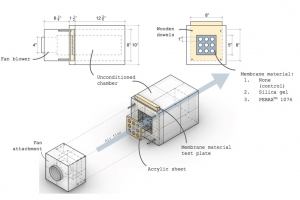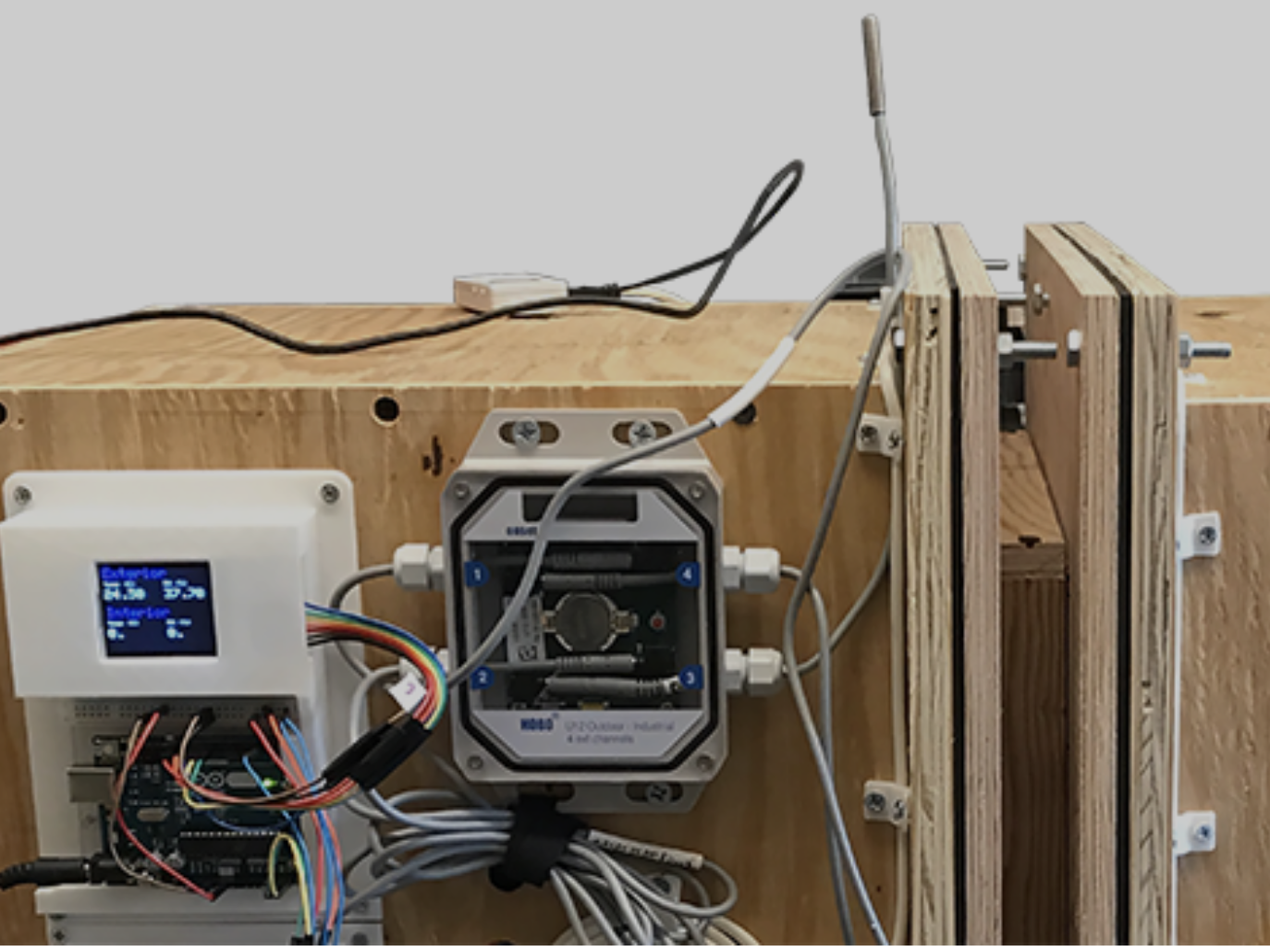
Faculty Research Connections Profile
Assistant Professor of Architecture Liz McCormick is a licensed architect, educator, and researcher whose work explores healthy, climatically sensitive, and contextually appropriate building design strategies that connect occupants to the outdoors while also reducing the dependence on mechanical conditioning technologies. She is currently working on her first book, Inside OUT (Routledge), which brings together a multi-disciplinary group of experts of the indoors, including scientists, anthropologists, engineers and architects, to discuss the future of human habitation with a dominant focus on human health in a post-pandemic world. Inside OUT will share a rich story of both the social and technological drivers of the conditioned indoors while making an argument for thoughtful interventions in the built environment. This book was inspired by the Inside l OUT Symposium that McCormick organized and moderated in Charlotte in March 2022.
McCormick is also a LEED Accredited Professional and a Certified Passive House Consultant. With more than 10 years of experience as a practicing architect, she has worked on a variety of project scales from single-family passive houses to LEED-certified commercial office buildings and campuses. In addition to teaching, McCormick is also pursuing a PhD in Design at North Carolina State University. She completed her MS in Building Technology from the Massachusetts Institute of Technology as well as BAs in architecture and fine arts from the Rhode Island School of Design.
McCormick was the recipient of the 2021 AIAS/ACSA New Faculty Teaching Award (full-time), which “honors architectural educators for exemplary work in areas such as building design, community collaborations, scholarship, and service,” the announcement reads. “Award winners inspire and challenge students, contribute to the profession’s knowledge base, and extend their work beyond the borders of academy into practice and the public sector.” Liz is also an active member of numerous professional and academic organizations, including the American Institute of Architects (AIA), AIA Charlotte Climate Action Committee, National Passive House Alliance (PHAUS), the Society of Building Science Educators (SBSE) and is a board member for the Building Technology Educators Society (BTES).
McCormick and co-investigator Brett Tempest, Associate Professor of Civil and Environmental Engineering, recently received a grant from the National Science Foundation (NSF) to engage students in McCormick's continued research into climate-resilient architecture in tropical regions. Awarded in the category of International Research Experience for Students (IRES Track 1), the three-year, $300,000 grant will allow six students per year to join McCormick and Tempest in Tanzania, Africa, for applied community-engaged research in summer sessions. Learn more about that grant here.
Explore HER recent work
McCormick has received a 2021 Buell Center Course Development Prize in Architecture, Climate Change, and Society for her class "High-Performance, Low-Tech." The prize, which is awarded by Columbia University’s Temple Hoyne Buell Center for the Study of American Architecture and the Association of Collegiate Schools of Architecture (ACSA), recognizes coursework that focuses on the intersections of climate, infrastructure, and architecture.
To explore the hygrothermal behavior of potential enclosure materials and assemblies, McCormick designed and constructed a custom tabletop hotbox, which is easily and affordably replicated. Through extensive testing and biological translation, the result is a repeatable method of exploring natural phenomena and choreographing moisture drive in building materials, as inspired by plant biology.
DIGITALLY DISRUPTIVE CRITICAL REGIONALISM: Climate, Place and Facade The history of the built environment is quite extensive as building typologies have typically evolved slowly over time. The publication where McCormick contributed, deals with the question in relation to the underlying research, how digitally disruptive architecture can contribute to rethink the idea of critical regionalism in response to façade design and climatic conditions.


